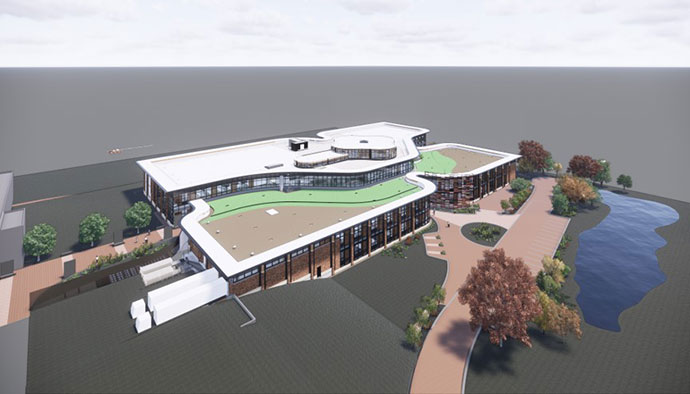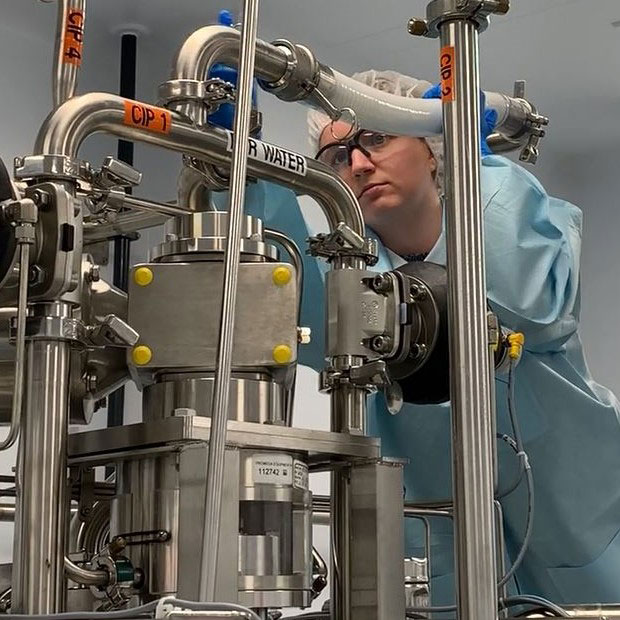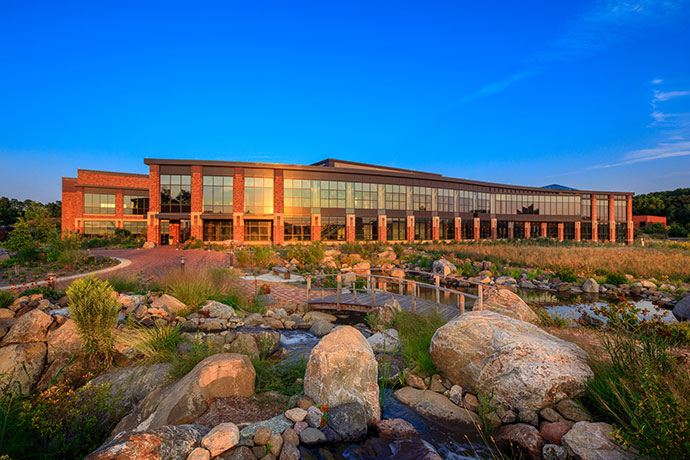It might not surprise some to learn that the 18th International Forum on Consciousness will take place in May in Madison, Wisconsin, nor that it will feature a session on the use of psychedelics in therapy. Madison, after all, is not only the ultimate university town, but a place where the 1960s revolution in consciousness that radicalized campuses across the country still resounds.
Even consciousness conferences need sponsors, however. And the activities of this year’s co-hosts — the BioPharmaceutical Technology Center Institute (BTC Institute) and Promega Corporation — show that the scientific revolution is in full, job-creating bloom.
Employing 1,400 in 16 countries and with a product portfolio of more than 4,000 products covering the fields of genomics, protein analysis and expression, cellular analysis, drug discovery and genetic identity, Promega provides solutions and technical support to life scientists in academic, industrial and government settings.
In January the company saw some support of its own from the Wisconsin Economic Development Corporation, as the state agency announced it is providing up to $1.5 million in performance-based tax credits over three years to support the construction of a new R&D facility at the company’s Fitchburg campus in the Madison area — a $190-million project expected to create 100 jobs. Ground was broken in July for the expansion and construction is expected to be completed in 2020.

R&D spread across three buildings at the Fitchburg campus will be consolidated into a new 270,000-sq.-ft., three-story building. The expansion follows a move last year of 25 jobs from the company’s manufacturing site in San Luis Obispo, California, to Wisconsin, which involved $750,000 in capital investment and up to $185,000 in WEDC support.
Fitchburg is located in Dane County, which was responsible for 56 percent of Wisconsin’s job growth between 2001 and 2015, and boasts one of the 10 lowest regional unemployment rates in the nation, according to Fitchburg’s latest economic development strategic plan “City in Motion.” The county saw IT employment growth of 31 percent from 2010-2015, and is home to other growing firms such as Thermo Fisher Scientific, Placon Corporation, Sub-Zero/Wolf Appliance, OneNeckIT Data Center and Saris Cycling.
Promega, founded in Madison in 1978, manufactures enzymes and enzyme systems for the amplification and cloning of DNA, detection of gene expression, cell health or biochemical assays and protein analysis in Fitchburg. As the corporate headquarters, the Fitchburg office also provides most of the quality assurance testing and technical support for products manufactured by other Promega facilities — in addition to San Luis Obispo, a company fact sheet says other manufacturing sites globally are in Sunnyvale, California; Seoul, South Korea; and Shanghai. The company has branch offices in 22 other countries, and more than 50 global distributors serving 100 countries.
Global Green Strategy
The 400-acre Fitchburg campus also is home to marketing, customer service, legal and human resources functions. And it exemplifies a company-wide focus on sustainability, with such features as rain gardens to filter runoff, lighting that reduces night-time light pollution, and prairie plantings around the campus that seek to preserve native flora and fauna.

“Additionally, the Madison campus hosts a community garden for employees as well as a garden used by culinary services to provide fresh ingredients for the on-site cafeterias,” says the company. “Our catering services are used by Promega as well as the Fitchburg community for events hosted at the BioPharmaceutical Technology Center. Madison also serves as the site of the Promega Wellness Center, a wellness facility staffed by a full time nurse practitioner that provides health education and medical care for Promega employees.
No doubt the company’s global facilities planning team enjoy taking advantage of the amenities they helped introduce — if they aren’t too busy tending to the company’s multiple projects, begun in 2017, designed and planned with aggressive sustainability goals and strategies.
Promega Germany (GmbH) is constructing a flagship green building that represents Promega in Europe. The 14,000-sq.-m. (150,000-sq.-ft.) facility will house the company’s largest overseas branch, the European Distribution Center (Euro Hub) and Terso Europe. “This facility will comply with or exceed the strenuous energy performance and green building standards of the German Building Code,” says Promega. “Advanced energy features include active slab heating and cooling, night time mass cooling, ground source energy wells and advanced heat recovery. Other key sustainability elements include a green roof with integrated photovoltaics, combined mechanical ventilation with operable windows and advanced daylight design.”

In the UK, Promega is building a 1,700-sq.-m. (18,000-sq.-ft.) structure to support sales, logistics and customer support staff. “The design team and Promega Corporate Facilities Staff developed a sustainability features decision matrix and tracking system that has been applied to all new or substantially remodeled Promega facilities worldwide,” the company explains. “Sustainability priorities for the UK site include energy performance, employee health and well-being, ecology and landscaping, and community engagement. This facility will substantially exceed UK code requirements by meeting British green building (BREEAM ‘Excellent’) requirements for energy, carbon emissions and water conservation. Notable features include a green roof, combined mechanical ventilation and operable windows, a landscape that substantially improves the ecological value of the site, and use of environmentally certified materials.”
Awareness Part of Business Climate
Even as it was moving a small number of jobs from California, Promega in 2017 began expanding the manufacturing capability in San Luis Obispo, as well as starting work on the new R&D “sub-campus” in Madison. “Sustainable design,” says the company, “will have a significant presence in both facilities.” But the company’s sustainability ethos goes beyond buildings:

The BioPharmaceutical Technology Center Institute (BTCI), where many Promega employees volunteer time, is a not-for-profit organization operated exclusively for educational, scientific and cultural purposes. BTCI is located on the company’s Madison campus, and has offices and teaching labs that are used to coordinate classes for the community, the Madison Youth Apprenticeship program, programs in conjunction with local colleges and universities, and K-12 programs. The BTCI also sponsors an annual Stem Cell Symposium and Bioethics Forum in collaborations with several institutions around Wisconsin.
The Woods Hollow Children’s Center, a non-profit child care center sponsored by Promega and Fitchburg Center, offers high quality child care and early childhood education experiences for the children of the surrounding community.
That surrounding community is fully conscious too: In late February, the Fitchburg Common Council formally approved a resolution that sets a goal to meet 100 percent of electric needs for city operations with renewable energy resources by 2030. Fitchburg joins Madison, Eau Claire and Middleton as cities in Wisconsin that have passed similar resolutions. According to Sierra Club, over 90 cities, 10 counties and two states have adopted 100-percent clean energy goals.


